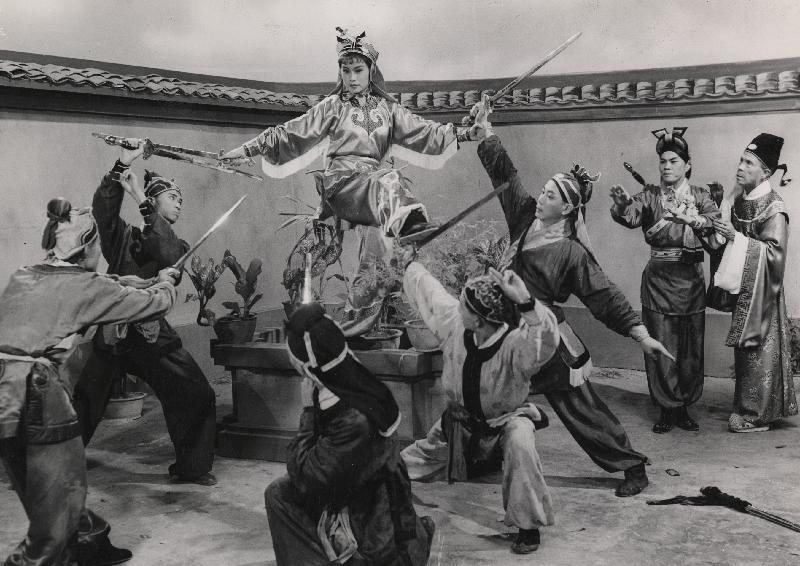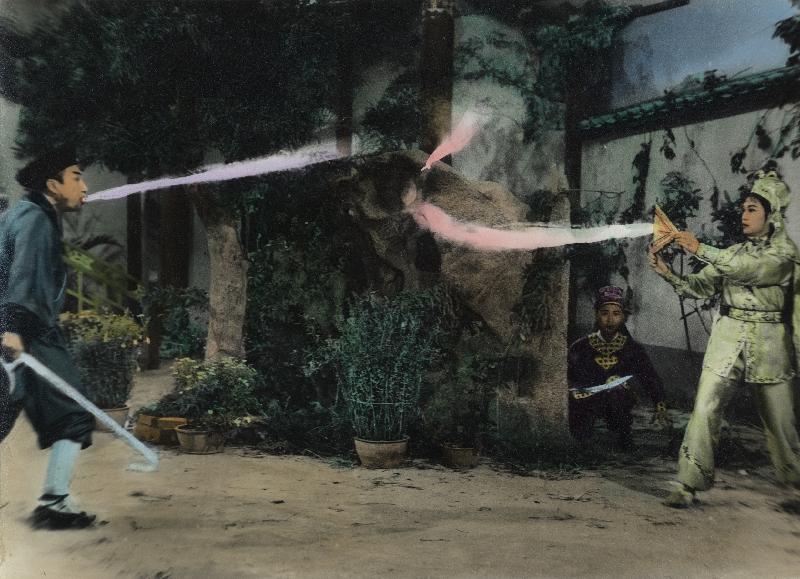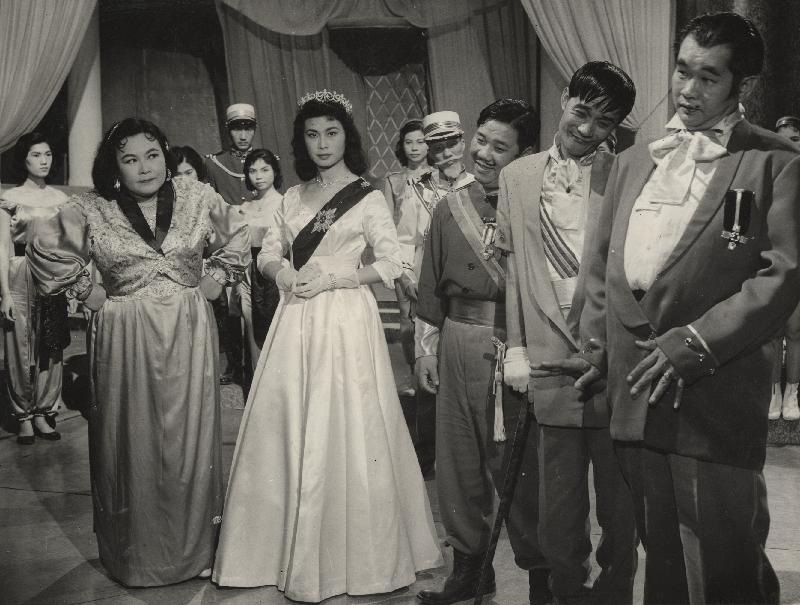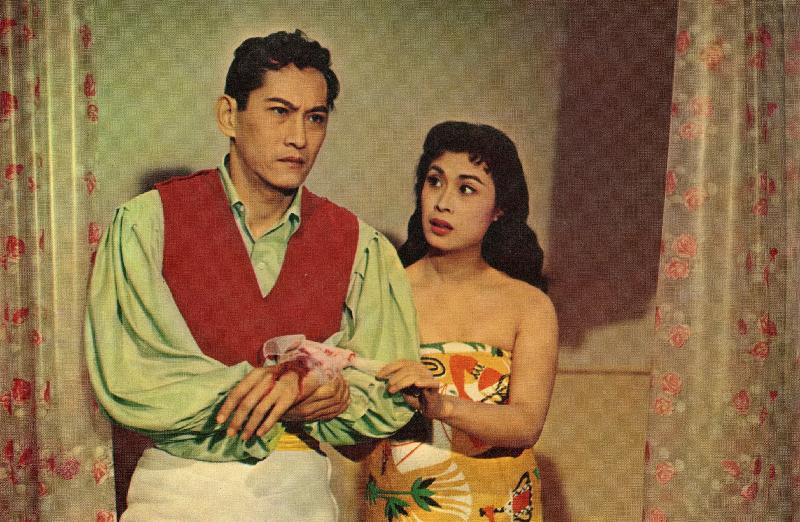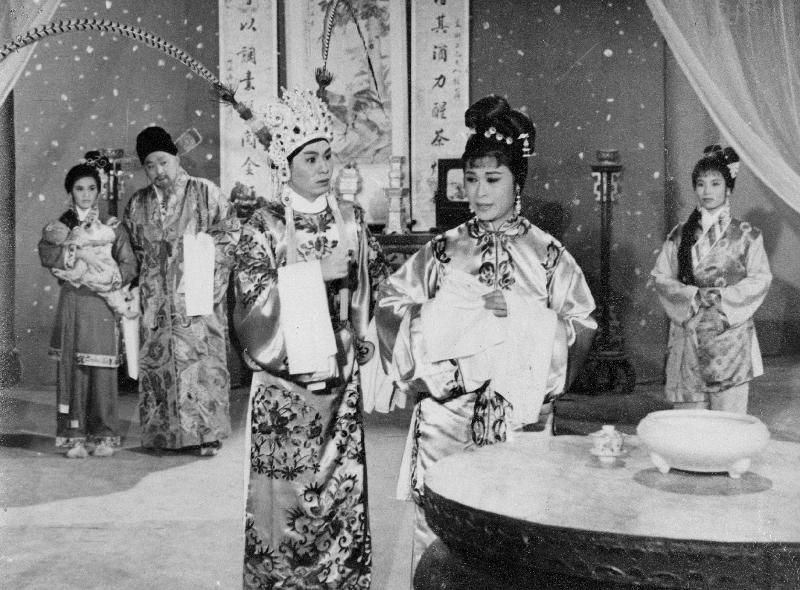The Hong Kong Film Archive (HKFA) of the Leisure and Cultural Services Department will present "Law Yim-hing, Ambassador of Alluring Beauty" as part of the "Morning Matinee" series at 11am on Fridays from June to August. Thirteen of Law's films will showcase her iconic screen personas and phenomenal range in acting. Some of the films will be accompanied by post-screening talks hosted by film critics Hui Kin-cheung, Cheung Man-shan and Lau Yam and Law will attend the post-screening talk on June 7 to meet the audience.
In addition, the HKFA will hold a free exhibition from June 7 to August 30 at the 1/F Foyer to review Law's film career and the on- and off-screen anecdotes about her.
Law Yim-hing, an early fan of Cantonese opera, was a disciple of Cantonese opera virtuoso Sit Kok-sin. Law made her screen debut in 1948 and with her solid martial arts skills from Cantonese opera training, she found fame in wuxia films. In her 20-year acting career, Law was featured in over 300 films, making her the most productive actress in Cantonese cinema by far. She traversed with ease a variety of film genres and amassed a large following of fans with her extraordinary charm and diversity of film roles, earning her the title "Ambassador of Alluring Beauty".
Law was the first actress to play the "White-haired Demon Girl" in Hong Kong cinema. Starring alongside Cheung Ying in the trilogy "Story of the White-haired Demon Girl" (1959), Law was the consummate wuxia heroine in a series of acrobatic combat scenes. In a sword dancing scene in the dark, Law dances with grace and fluidity while singing with passion, fully demonstrating her versatility.
In "Seven Knights and Thirteen Chivalrous Men" (1967), Law and Tso Tat-wah join forces to combat the villain Sek Kin. The colourful mechanical film sets and spectacular special effects made the movie a hit, expanding Law's popularity as a martial arts actress.
"The Chilly River Pass" (1961) tells the story of General Fan Lei-fa (Law) and Sit Ting-shan (So Siu-tong). With training from Peking opera master Yuan Xiaotian, Law displays her acrobatic prowess in both the northern and southern operatic martial arts in the film.
Yam Kim-fai paired up with Law in "How Tik Ching and the Five Tigers Conquered the West" (1962), playing Tik Ching and Princess Sheung Yeung respectively. The duo defeat the Western Liao invader and other enemies.
The sing-song film "My Kingdom for a Husband" (1957) follows the romance between the Queen of the Snow Kingdom, played by Law, and a musician played by Cheung Ying. Cheung charms by performing Cantonese opera in Western costumes while Law impresses the audience with her femininity and glamour in various Western gowns. She even has a rare bathing scene that thrilled audiences.
"True Love" (1958) is like a showcase of European court costumes in which Law is stunning in every court dress she wears. Playing a daughter of a warlord, Law falls in love with teacher Cheung Ying. This triggers the jealousy of her admirer Lam Kau, who schemes to ruin their romance.
Yam Kim-fai collaborated with Law in over 60 films. "Playboy Emperor" (1953) is the earliest available costume sing-song film starring the duo. The Tang Emperor (Yam), who is obsessed with the beauty of Chang'e (Law) in a painting, falls into a reverie in the Moon Palace.
"Tragic Love of Ping-kei" (1963) is performed by a stellar operatic cast including Ho Fei-fan, Leung Sing-por, Chan Kam-tong and Lee Hong-kum. Law plays Bai Ping-kei, a talented beauty who sacrifices her fortune for her family and country. In a heartrending suicide scene in which she drowns herself in a river, she touches the audience with her exquisite portrayal of inexpressible sorrow and poignancy.
In "Punish the Unfaithful" (1955), the directorial debut of librettist Ng Yat-siu, Kam Yuk-lo (Law) is pushed into a river and rescued by a kind man who helps her to punish her unfaithful lover. The film delights audiences with the incredible singing skills of Law and the other two leads, Leung Mo-sheung and Leung Sing-por.
In "Beauty Slain by the Sword" (1959), Woo Fung attempts to win Law's heart by plotting to put her husband in jail. Woo played the villain's role for the first time in this film; his slyness and hypocrisy contrast with Law's delicacy and innocence.
Law in "Our Family" (1964) gives a heart-breaking performance as an obedient wife who is abused by her snobbish mother-in-law, Tam Lan-hing. Through it all, Law subtly expresses her determination to uphold filial piety.
All the films are in Cantonese and without subtitles.
Tickets priced at $30 are now available at URBTIX (www.urbtix.hk). For credit card telephone bookings, please call 2111 5999. For programme details, please call 2739 2139 or visit www.filmarchive.gov.hk/en_US/web/hkfa/programmesandexhibitions/2019lyh/index.html.
Follow this news feed: East Asia






